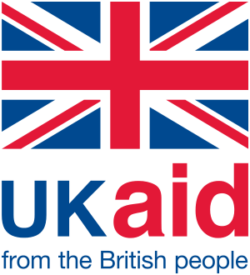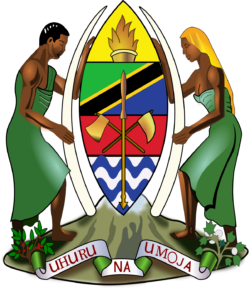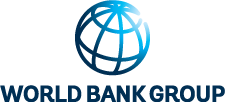Event Summary
A conference on climate smart infrastructure, innovation, and education – featuring panel sessions, masterclasses, and exhibitions related to resilient urbanization in Tanzania.
For URTZ 2019, 250+ gathered at the National Museum and House of Culture in Dar es Salaam to exchange knowledge and participate in dialogue on sustainable, climate-smart solutions for improved resilience in Tanzania.
The conference was a Zero Waste event – a precedent-setting effort to promote changes that can be made at the community, producer, and government levels to transform our resource lifecycles for improved resilience.
Engaged participants included:
- 70+ government officials from Tanzania
- 90+ donor partners, CSO reps, and experts in the field of urban resilience
- 30+ academic leaders
- 60+ artists and students
DAY ONE aimed to effectively build a case for climate smart infrastructure and planning in Tanzania, featuring presentations on interventions being implemented across the country and the continent to secure sustainable urban resilience. Keynote speakers acknowledged the complex challenges that Dar es Salaam is facing and applauded the Tanzania Urban Resilience Programme’s innovative and integrated approach. Experts presented case studies, cutting-edge research, and economic considerations that address the interests of the individual and the community, as well as the wider public and private sectors. Practical sessions provided a more in-depth exchange of knowledge on topics ranging from exploring the science behind flood management to putting zero waste in action. The day concluded with the opening of Creating Resilience – an exhibition showcasing the works of local artists that highlighted the connection between solid waste and flooding.
DAY TWO concentrated on innovation and education for sustained resilience-building. Academic leaders kicked off the sessions with an introduction to the Resilience Academy – a digital hub and community for improved access to education and resources for resilient planning. Local and international presenters from academia proceeded to stress the importance of tools, technology, and data that are open, affordable, and locally adaptable. An emphasis on the role of universities in building capacity and information sharing between students, local communities, and government was also discussed in detail. Afternoon sessions focused on several unique mapping and surveying projects which have collected critical risk data and information for evidence-based decision making, as well as partnerships and research that have built off of this data. The event closed with the grand finale of the Resilience Academy’s Data Visualization Challenge, during which students presented their work to a panel of academic leaders and data users.
Key points from the sessions:
Day one: Climate-Smart Infrastructure + Planning
“Increasingly, cities around the world have recognized that healthy and functioning ecosystems around urban areas improve resilience. Dar es Salaam City Council is dedicated to raising awareness on this for our citizens – and organizing institutional coordination for management of Urban Natural Assets.” – Grace Mbena, Dar es Salaam City Council
Four priorities of intervention in Tanzania:
- Risk Identification – applying best practices and embracing new technology
- Risk Reduction – strength through structural and non-structural changes
- Emergency Preparedness – building capacity in local government departments and communities
- Resilience Academy – equipping the next generation to ensure sustainability
Considerations for Climate-Smart Infrastructure, Research, and Planning:
- Developing close working relations with local communities to ensure cooperation, sustainable solutions and, most importantly, to create a “culture of resilience”
- Adopting alternative planning approaches for cities like human-centered design thinking, scenario planning, and urban tinkering
- Focussing on integrating natural resources and climate change resilience into city planning
- Understanding and articulating the many economic benefits of climate-smart solutions for development – and recognizing the economic burden on a non-resilient cities ($100 Million USD or 230 Billion TSH in household losses during one flood event in 2018)
Day two: Innovation + Education for Urban Resilience
“We are talking about global problems that cannot be solved by a single university or a single country, but will require global networks (like the Resilience Academy) to communicate and align resources to combat them.” – Joseph Mayunga, Ardhi University, Dar es Salaam
- Enhancing youth employability through practical, hands-on experience and skill-building
- Ensuring open access to resources, research, and education on resilient planning
- Encouraging entrepreneurship by equipping Tanzanians with the tools, technology, and open data needed to build resilient startups
- Evaluating ways of potential private sector involvement in resilience-building, and supporting collaboration between government and private sector
Learn more:
You can now access the presentations + photos.
Session notes and localized Zero Waste guidelines will soon be available with other URTZ 2019 Conference Materials HERE.
Full agenda: URTZ 2019 Agenda
Media
You can read more about URTZ and TURP in reports by the Daily News, The Citizen, and the World Bank.
Events
Creating Resilience will be hosted at the National Museum until October 31st – and as a ‘moving exhibition’ on the BRT bus (Kimara to Kivukoni route)
URTZ 2019 is brought to you by

 .
. 

